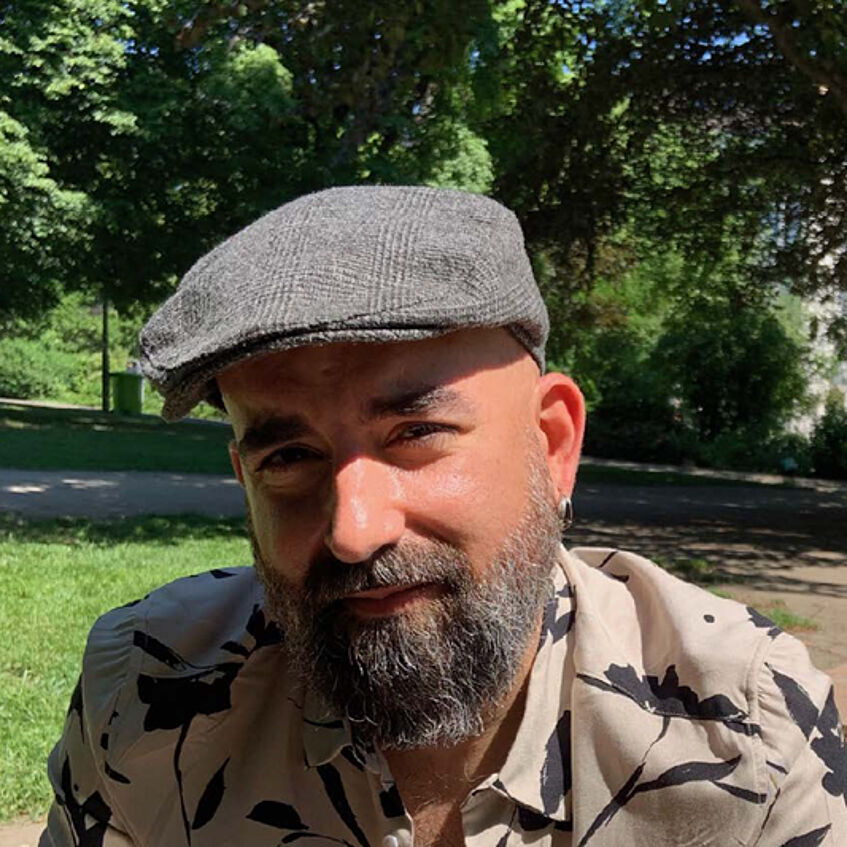
Giorgio Brocco is a medical and environmental anthropologist with an interest in critical disability studies and post/decolonial theories. His research investigates subjectivity, politics and morality in the context of healing practices, toxicity, plantation and the body in both Tanzania (East Africa) and the two French overseas departments of Martinique and Guadeloupe. During these years, Giorgio has taken part in various international conferences and workshops as well as published peer-reviewed book chapters, articles and online papers. In 2023, Giorgio becomes editor of the new Berghahn Books series “Disability and Chronicity through the Ethnographic Lens”.
By analyzing biomedical and environmental measures, political and economic debates, public health policy reports, and everyday practices of human and more-than-human subjects, his postdoctoral project grapples with the multiple ways humans conceive, interact with, and imagine the lasting presence of artificial chemical molecules as well as are able to imagine altered forms of life, death and dis/ability in the two French overseas departments and Caribbean islands of Martinique and Guadeloupe.
In his PhD project (at the Department of Social and Cultural Anthropology, Freie Universität Berlin), Giorgio documented the life experiences and socio-economic conditions of people with albinism living in Tanzania. The focus of his analysis concerned not only the daily living experiences of persons with albinism but the multiple ways in which his research participants related to each other in their everyday experiences, talked about and imagined their bodily condition and forged various networks of relatedness, support and solidarity.
Department of Social and Cultural Anthropology
NIG, 4th floor
Universitätsstraße 7
1010 Vienna
2021 “Trajectories of Albinism Subjectivities, Experiences, and Narratives in Tanzania.” Department of Social and Cultural Anthropology, Freie Universität Berlin, Berlin, Germany.
N.D. (with Mbaye, C.A.) “Articulations of poisoning: Historicity, relationality, and contextuality of the Chlordecone pollution in the French Antilles.” In Brocco, G. and Kehr J. (special issue edited) “Troubled Knowledge Health, Harm and the Environment in Late Industrialism.” Anthropology and Medicine. (Under review)
2026 (with Mauksch, S.) “After emancipation: Disability, work and dignity in two world settings. Article with commentaries and reply from the authors.” Current Anthropology. (forthcoming).
2025 (with Mauksch, S.) “Introduction to Special Issue: Laboring from Ex-Centric Sites: Disability, Chronicity and Work.” Anthropology of Work Review. (forthcoming)
2025 (with Meek, L. and Saffitz, J.) “Provincializing BodyMinds, Decolonizing Disability.“ Social Science and Medicine. 376: 118048.
2024 “Theories and practices of disability from the Global South: A critical anthropological perspective.” Frontiers in Health Services, 4: 1261091.
2023 “Connected epistemologies: Fragmented review of post- and decolonial perspectives in Medical Anthropology” Curare, Zeitschrift für Medizinethnologie.
“Beyond the surface: Political rhetorics, discursive practices and multiple enfleshments of albinism.” (In preparation)
2022 (with Freire de Andrade Neves, M.) “Radically good: Reformulating healing and care practices in times of crisis.” Medizinethnologie Körper, Gesundheit und Heilung in einer globalisierten Welt. (republished)
2024 “Anthropological explorations of disability.” The Cambridge Journal of Anthropology. 42(2): 136-142.
2022 “Multiple energy landscapes.” PoLAR: Political and Legal Anthropology Review. 45: 1-8.
2020 “Politiche della disabilità. Poliomielite, appartenenza di gruppo, e attivismo in Sierra Leone [Disability politics. Poliomyelitis, group belonging, and activism in Sierra Leone].” AM Rivista della Società Italiana di Antropologia medica Journal of the Italian Society for Medical Anthropology, 50: 523 – 531.
2017 Albinism in Africa: A Handbook. NGO report. Palermo: Tulime Onlus.
2017 “Africa Orientale. Il nuovo mercato della droga: Partite stupefacenti [East Africa. The new drug market: Surprising batches].” In: Nigrizia, (April), 135 (4): 35-37.
2017 “La deriva autoritaria del Bulldozer [The authoritarian drift of the Bulldozer].” In: Nigrizia, (March), 135 (3): 20-21.
2016 “A tutto gas. Nuovi giacimenti nel Bacino di Ruvu, Tanzania [At full throttle. New gas fields in the Ruvu Basin, Tanzania].” In: Nigrizia, (June), 134 (6): 20-21.
2016 “Note Generazionali. Il diversificato panorama musicale in Tanzania [Generational notes. The diversifying music scene in Tanzania].” Nigrizia, (July-August), 134 (7-8): 76-77.
2015 “Messe nere vittime bianche. Albinismo tra discriminazione e inclusione [Black messes white victims. Albinism between discrimination and inclusion].” In: Nigrizia, (July-August), 133 (7-8): 14-15.
